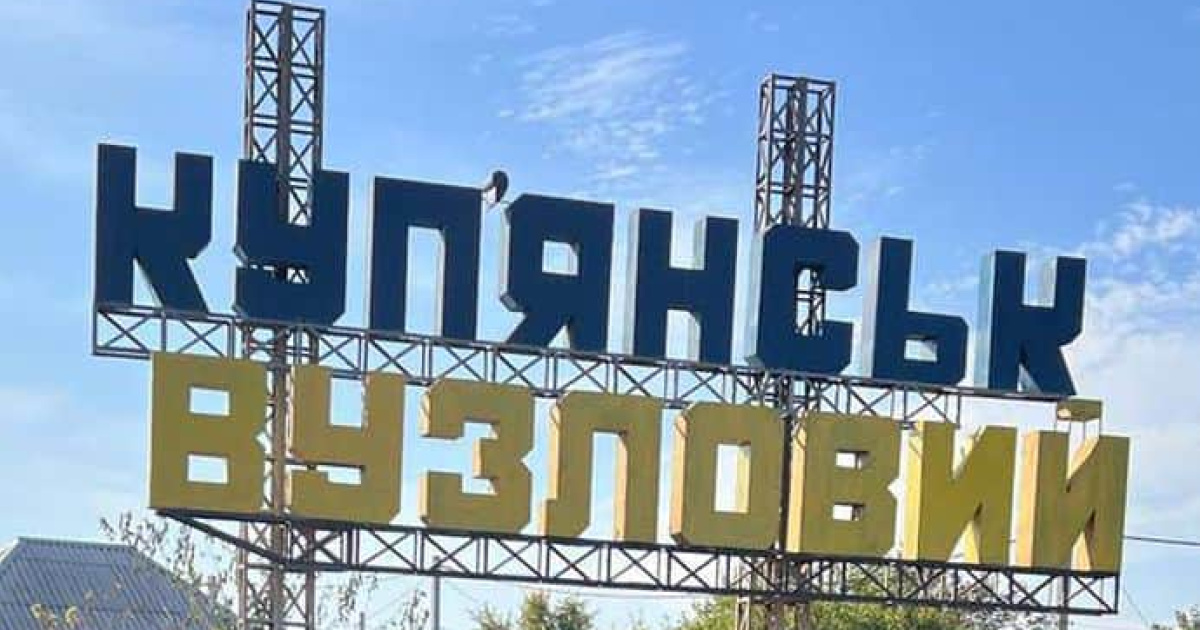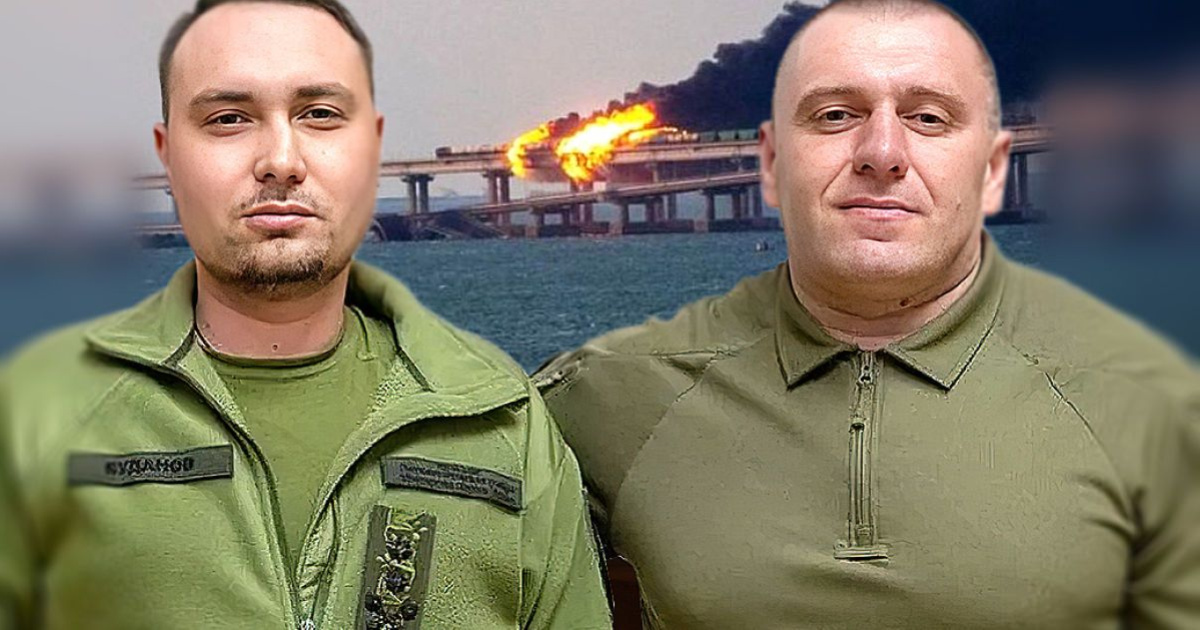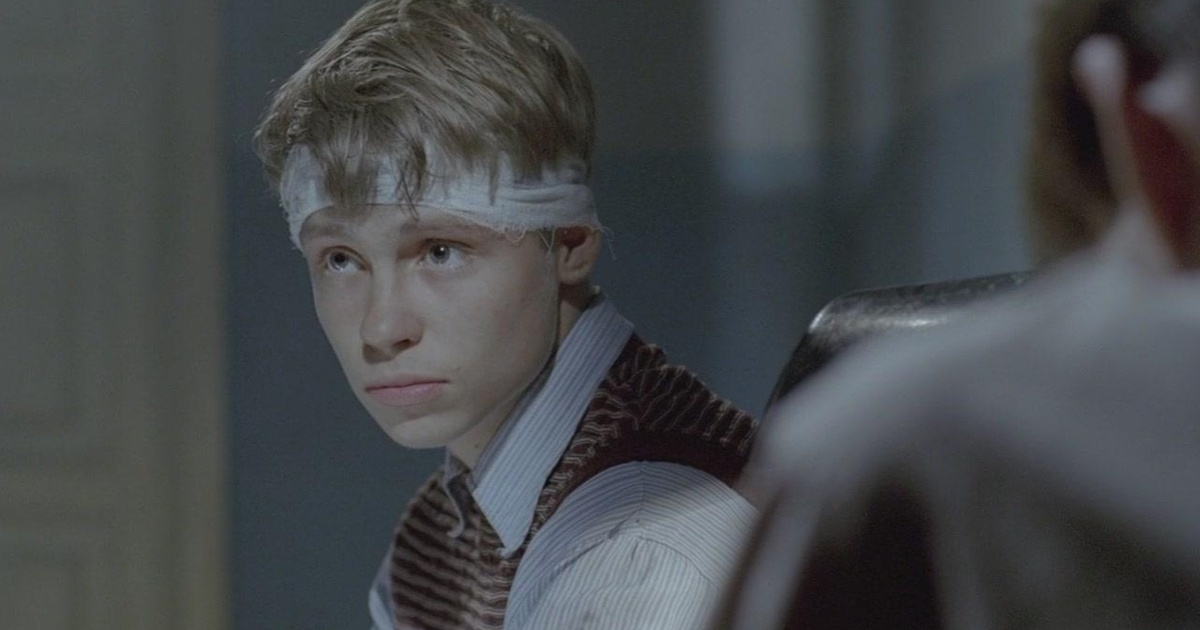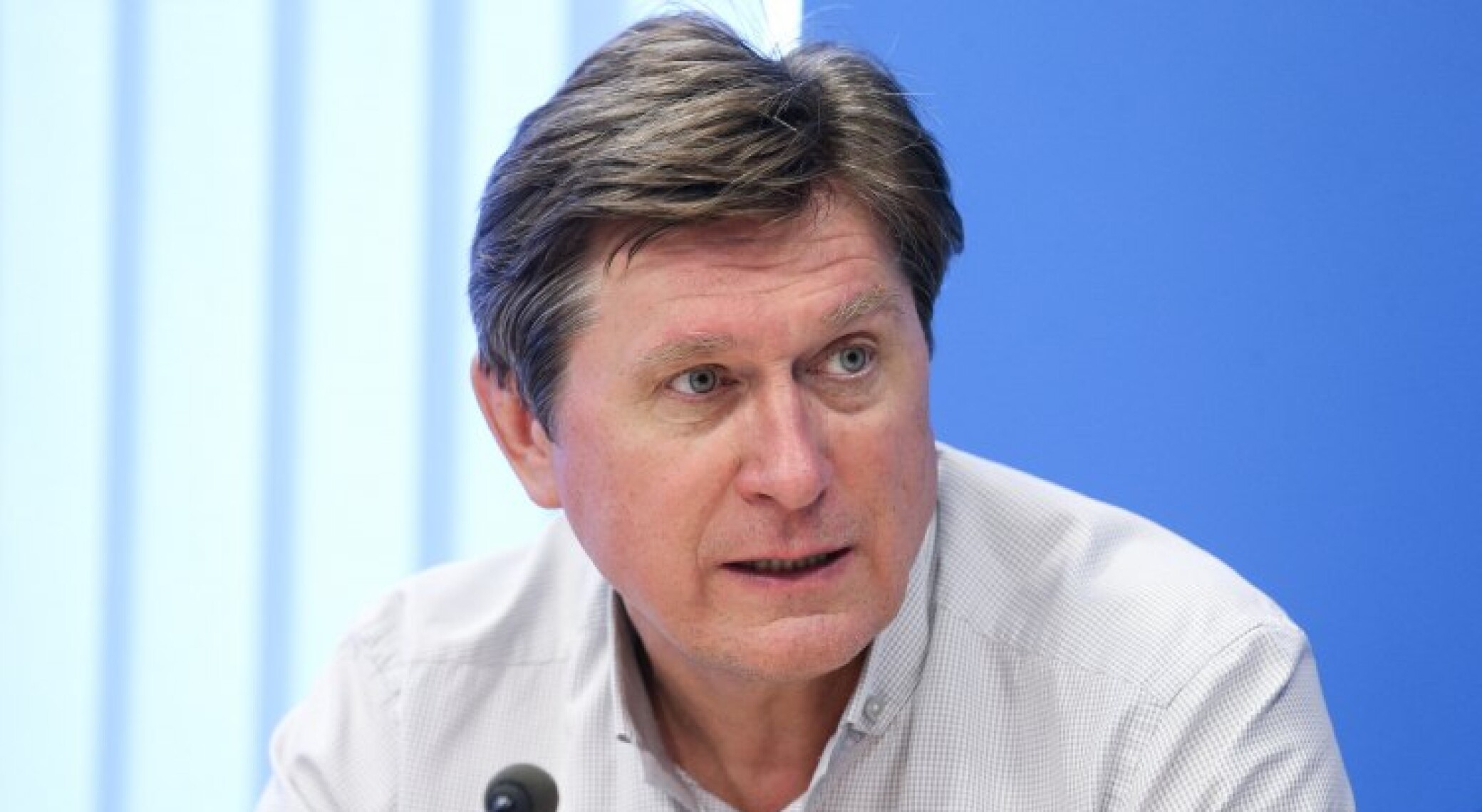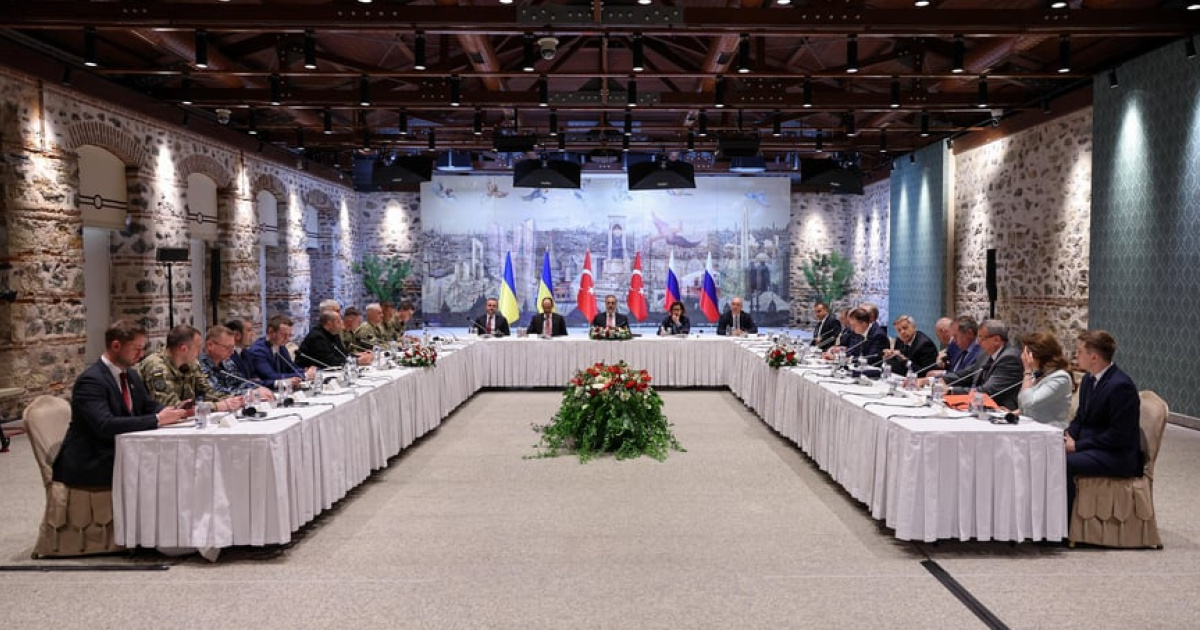
The second round of negotiations between Ukraine and russia in Istanbul initially raised modest expectations. And so it turned out. According to one Ukrainian official in a comment to the Financial Times, “there was no serious breakthrough”, only “some minor shifts”.
Russia handed Ukraine its “memorandum”, which called for the withdrawal of Ukrainian troops from the Donetsk, Luhansk, Kherson, and Zaporizhzhia oblasts. Ukraine once again proposed an immediate and unconditional 30-day ceasefire and emphasized the need for a personal meeting between Zelensky and putin. The sides took a week to consider the proposals, although the outcome of those reflections already seems evident.
At the same time, both sides agreed to release all seriously wounded individuals and prisoners of war under 25 years of age. They also agreed to exchange the bodies of the deceased.
A separate topic was the return of abducted children: moscow promised to consider the possibility of returning 339 minors listed by Ukraine.
What is really happening on the diplomatic front, how the Istanbul meeting should be interpreted, what the kremlin’s true intentions are, and what role the United States plays in all this — OstroV discussed with political analyst and former member of Ukraine’s delegation to the Minsk TCG, Serhiy Harmash.
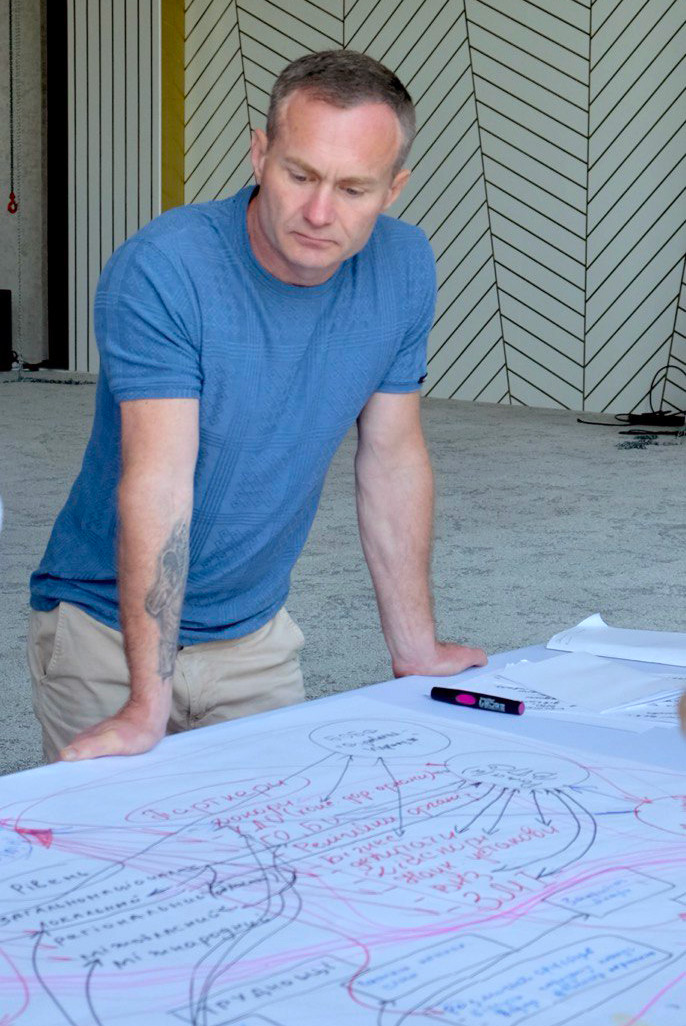
— What conclusions can be drawn from the June 2 meeting in Istanbul?
— The main conclusion is probably that russia is still not interested in ending the war. This is evident from its entire negotiation tactic: dragging out the process, making inherently impossible demands, refusing the idea of a 30-day truce.
Russia is showing a desire to continue active hostilities, maintain initiative on the front, and keep the pace of its offensive. This was made very clear in the words of Nebenzya (russia’s Permanent Representative to the UN), who stated that moscow does not want a 30-day ceasefire because it would give Ukraine a chance “to catch its breath, lick its wounds, and stop the collapse of the eastern front”. Yes, a truce would allow the balance of power on the front to be restored, but it is precisely that balance which would guarantee a prolonged cessation of hostilities. After all, war stops when there is parity of forces on the front line. Hence the logical conclusion: if moscow doesn’t want a ceasefire, then it intends to continue its aggression. Accordingly, peace negotiations in such a situation are nothing more than a performance on its part.
Therefore, for now, it can be said that the negotiations are not being conducted for results, but rather for the sake of one spectator sitting in the Oval Office. Both sides are interested in his favor, and each is trying to gain certain tactical preferences — whether it be prisoner exchanges or informational and political bonuses. Zelensky is pushing the process, trying to drag putin into a direct meeting, and accusing him of being unwilling to end the war. Putin, on the contrary, is trying to drag out the negotiations as long as possible, turning them into something resembling “Minsk talks”.
We, just like in “Minsk”, seem to exist in a dual reality: Ukraine is heading into new negotiations about a 30-day ceasefire, while russia is continuing the old Istanbul-22 format with its ultimatum-like demands for ending the war entirely. That is, one side arrives to solve one set of issues, and the other — an entirely different set. So, the process seems to be ongoing, something is happening, but Ukraine and russia are not getting any closer to peace.
— In your view, is the main spectator — U.S. President Donald Trump — satisfied with such modest results from the negotiations?
— I think Trump has already realized that achieving peace without putting pressure on russia is unrealistic. But he can’t pressure putin, because he wants to cooperate with him and make money. In such conditions, merely preserving the process is optimal for him. It allows him not to impose sanctions on russia, which could interfere with his “business” with moscow. But this can’t go on forever. In fact, by remaining silent about Ukraine destroying russia’s strategic bombers, he is already signaling to putin that the pause has dragged on too long and that moscow needs to be more realistic in its demands.
— And what is the kremlin’s purpose for these negotiations? Is it all just to buy time?
— Russia is interested in such meetings. Otherwise, it would be giving opponents of Trump in the U.S. and Europe a reason to criticize him for inaction. That would weaken his position both within the States and on the international stage. And putin is not interested in weakening his key (even if perhaps unwitting) ally. So the kremlin is invested in this negotiation process, primarily to give “their” Trump the ability to save face and avoid imposing new sanctions on russia.
Plus, and I want to highlight this, the negotiations are proceeding without any announcement of a ceasefire, something Ukraine and its European partners had demanded. Accordingly, the talks are unfolding according to moscow’s script and serving its interests.
Moreover, despite Medinsky’s statements, russia already understands that it “can’t fight forever”. At a minimum, it needs a pause. But one that will lock in its territorial gains. That’s why it’s stalling, creating the illusion of a diplomatic resolution that allows it to talk about peace while continuing to seize Ukrainian territory and thereby strengthen its diplomatic hand.
In addition, the kremlin also cares about tactical successes like the return of captured russians and the bodies of the dead. Their relatives are fairly active, and this creates a social problem for putin. Through these negotiations, he’s solving that problem and shaping the public opinion he needs.
— Why is putin stalling for time?
— First, he can’t end the war without fully capturing the Donetsk oblast, which is written into the russian constitution as russian territory. That would be a political defeat for him.
Second — if the war suddenly ends, hundreds of thousands of mobilized men will return home, and something will have to be done with them. Among them are many people with mental disorders, criminal records, disabilities. All of this will definitely lead to a spike in crime and, as a result, social discontent.
In addition, the return of such a large number of people to the labor market will sharply increase the unemployment rate. Just the other day, data was published in russia showing that 50% of the veterans returning from the “SMO” cannot find work.
The war justifies, in the eyes of russians, the economic hardships the country is facing. If the fighting stops, then for a few months the public will be in a “victory” euphoria, but after that people will start asking questions: why did we win, yet our lives got worse? Especially since the russian economy keeps shrinking.
One must prepare for peace just like for war, in advance. It's like coming out of starvation. It has to be done properly. Putin understands that. Unfortunately, I don’t see such understanding on our side.
Russia has a clear horizon — the State Duma elections in September 2026. They need to halt hostilities around summer 2026 in order to ride the wave of “victory euphoria” into the election campaign and win it. Putin doesn’t just need a victory in the elections, he needs a triumph that will legalize, in the public eye, further “tightening of the screws” under peacetime conditions, to offset everything mentioned above. Accordingly, until then he intends to seize the Donetsk oblast and secure his regime with economic resources that russians are currently bargaining for with the West during the negotiations. I mean the lifting of sanctions, unfreezing of assets, access to markets, economic cooperation with the U.S., and so on.
— In Istanbul, the sides exchanged memorandums, and judging by the info leaked to the media, russia’s document included a demand for the full withdrawal of Ukrainian troops from four oblasts. Is the kremlin deliberately writing in an obviously unachievable condition?
— Yes, this is exactly the tactic of dragging out negotiations. In addition, it’s a deliberate overstatement of demands to create space for future compromises and supposed “concessions” from moscow. After the russians, as they hope, seize the Donetsk oblast, and if (!) they feel they no longer have the resources to wage war effectively, they might “graciously” agree to leave Ukraine those parts of the Kherson and Zaporizhzhia oblasts which they don’t control anyway.
The thing is, the territories of the “Zaporizhzhia” and “Kherson” oblasts of the russian federation are not specified in the so-called “statutes” of these “federal subjects”. Accordingly, if the russians see that they can’t capture them anyway, and circumstances press in, it might very well turn out that the “russian” “Zaporizhzhia” and “Kherson” oblasts don’t align with the administrative borders of Ukraine’s Zaporizhzhia and Kherson oblasts.
That’s why they’re demanding everything now, of course, but if they can’t take it — I think they’ll agree to drop their claims to those territories (possibly temporarily) as a “compromise”.
– If we step back a bit from the Istanbul negotiations and look at the bigger picture: how would you assess the state of the negotiation process between russia, the U.S., and Europe? Has it already begun, or is preparation still underway?
– The negotiation process has definitely begun. This is evident from the “shuttle” diplomacy: Steve Witkoff regularly flies to moscow, where he’s presented with russia’s terms. Washington, through Kellogg or even Trump, gives their response and the concessions the Americans are willing to make. Europe is also voicing its position — both publicly and through the same shuttle diplomacy.
And we can see that the “root causes” of the conflict, which russia voiced as demands to the West back in December 2021 — they concern NATO expansion and returning the alliance to its 1997 borders. That means they can’t be resolved in negotiations with Kyiv. Nor can the international recognition of the “new territories” as russian, or a UN Security Council resolution, which they included in their “memorandum”.
Putin isn’t just fighting Ukraine. He’s trying to change the international order. And for that, he needs to negotiate with the U.S. and (at the very least) with other members of the UN Security Council.
So yes, the negotiation process is already underway. It’s moving, if not toward stable peace, then toward a prolonged truce. But so far, most of the actors in this process (except Kyiv) aren’t interested in ending the war and aren’t ready for it. Basically, the bargaining has begun, trial offers are being made, but no one — except Ukraine — is ready or willing to “buy” peace yet.
– How actively, in your opinion, are the U.S. currently participating in the negotiation process?
– The U.S. might want to step aside, but the situation doesn’t allow it. They’ve got elections in 2026, commitments to NATO members, they need allies in the fight against China… So they’re just retreating into the shadows to avoid public responsibility for the low effectiveness of these negotiations. But they simply can’t exit the settlement process.
Recent statements by the same Keith Kellogg show that the Americans are still involved — at least through acknowledging that the U.S. “understands” russia’s fears about NATO expansion.
I’m sure that statement was made right before the negotiations in Istanbul for a reason, and that Washington saw the russian “memorandum” earlier than the Ukrainian delegation received it in Istanbul.
But now it’s important to understand: the key player is no longer the U.S., but Trump himself. He’s already realized he can’t influence the outcome, so he’s content with the very fact of a negotiation process that lets him avoid escalating tensions with moscow. But the situation in the States is shifting. The threat of losing power due to the White House’s pro-putin policy, which is unpopular among Americans, might awaken a survival instinct in the Republican Party. Then Trump will be under pressure from party sponsors he can’t ignore. So basically, he’s running out of time for this “romance” with putin. And if that “romance” doesn’t produce some kind of “child” appealing to Americans, the “deep state” will come to the fore — meaning the System that Trump is now trying to break.
In fact, I think that process has already begun. Trump is publicly distancing himself from the Ukraine–russia topic, and the State Department and Congress are becoming more and more active.
– Are Trump’s harsh statements against putin just “flexing”?
– When people ask me about Trump, I say that it’s not appropriate for me to comment on that man’s words or actions, since I don’t have a medical degree. One day he says one thing, the next — the complete opposite. You have to watch the actions, not the words. And his actions today are still aimed at serving moscow’s interests. An alliance with them still seems more appealing to him than with liberal Europe or weak Ukraine.
As for the words… he needs to put some pressure on moscow, because that’s what his voters and allies want. So sharp statements toward putin come out from time to time. I think moscow “understands” them as a forced necessity. They don’t take them seriously over there. Even if Trump imposes some sanctions under pressure, they’ll be symbolic and coordinated with the russian federation. Unless, of course, putin disrupts those shadow agreements made with Trump through Witkoff. And that could happen too, considering the China factor, on which moscow depends.
– How do you assess Kyiv’s strategy on the negotiation track?
– Unfortunately, we don’t have much of a choice. Zelensky himself recently said that we can only supply ourselves with 40% of the weapons. That means the rest depends on the U.S. Even aid from other countries can be easily blocked by Washington. Such total dependence on the U.S. leaves us with no room to maneuver.
But I believe Volodymyr Zelensky has sensed and understood Donald Trump’s mood and is using the situation wisely. We’re taking what we can from this process: getting prisoners back, showing a peaceful attitude, receiving certain informational bonuses. Trump’s silence regarding the strike on russia’s nuclear forces essentially shields us from retaliation and creates strategic uncertainty for russia.
The only — albeit very serious (I’d say strategic) — danger is that under Trump’s pressure, we still began a peace dialogue without a bilateral ceasefire. That allows putin to buy time and use the negotiations as a shield from new sanctions.
But again — we had no choice.
– What might the coming months look like — both diplomatically and on the frontlines?
– Diplomatically, we’ll keep seeing the same dynamics. Most likely, there will be another meeting at some point, which will also end without any concrete result, except maybe new agreements on humanitarian issues.
By the way, Ukrainians who have been imprisoned in the so-called “DNR” and “LNR” since 2014 still haven’t been returned. That issue needs to be raised and resolved too. These are citizens of Ukraine. These people aren’t considered prisoners of war, but they still need to be brought back. And it seems russia is preparing this track, including the exchange of “political prisoners” in their “memorandum”.
Also, the number of POWs still allows for a positive result in negotiations on that front.
In general, russia will release people in small batches to stall for time. Then the same game that’s happening now will continue: Ukraine will say that russia’s demands are unacceptable. Russia will accuse Ukraine of being unwilling to negotiate. At some point, russia might make a diplomatic move to temporarily block the talks. Then, as a “concession”, it will unblock them — most likely under “pressure” from Trump — to boost his “ratings” in the eyes of the Western world. We’ll be watching a drawn-out “diplomatic hurdy-gurdy” with ups and downs.
As for the military component, I want to draw attention to an important detail: before the last negotiations, a meeting of the russian National Security Council took place, after which the commander of the ground forces was replaced. This suggests that putin was likely consulting and finding out how much more time was needed to capture the entire territory of the Donetsk oblast and what was required for that. I don’t know all the military capabilities of russia, but most likely, they will aim to seize the remaining part of the Donetsk oblast by the end of the year. And then they’ll intensify the negotiation process in order to wrap it up with a “russian victory” by the summer of 2026.
By the way, after the capture of Donbas and the emergence of the kremlin’s readiness for a real ceasefire, pressure from Trump on Kyiv will most likely increase. And it’ll be tougher than even now. We need to be prepared for that.
On our side, we will likely deliver pinpoint but strategically important strikes on russia’s defense. Even if they don’t change the situation on the frontline, they will weaken russia’s overall military potential. That’ll be a powerful pressure factor on moscow during peace talks and will push our European “partners” to take a more active stance toward russia. Right now, they’re afraid — and it’s always easier to pressure the weak.
– So you’re betting on the State Duma elections?
– The kremlin is betting on them. Recently, the first deputy head of the russian presidential administration, Sergey Kiriyenko, met with the leaders of the “United Russia” party where he voiced all these theses. He did, however, mention a “negative” scenario — in his words — in which the conflict would have to end sooner. That shows the kremlin is considering that outcome as well. And if they’re considering it, that means it’s realistic.
By Vladyslav Bulatchik, OstroV

